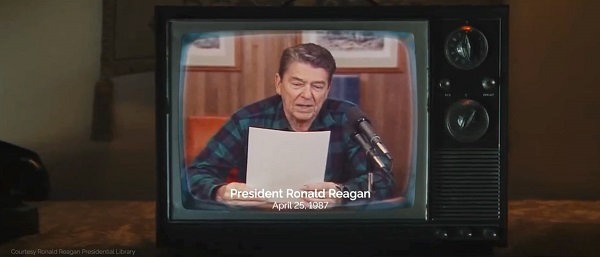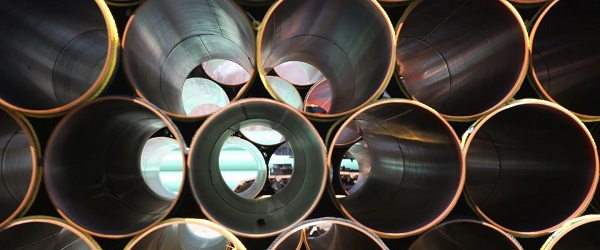Energy
Meet the BC Liberal MLA fighting against #ShutDownCanada activists

Ellis Ross is the MLA for Skeena in British Columbia.
Liberal MLA Ellis Ross is BC’s Official Opposition Critic for LNG and Resource Opportunities. He posts videos to keep an ongoing conversation up with his constituents, his province, and his country.
This post from February 25 shows his frustration at the state of communication and understanding in Canada. It’s been seen over 350,000 times so far!
From Ellis Ross
“Canada is missing the point. I’m no racist, hypocrite, USA puppet hell bent on destroying my own country.”
Ellis Ross was elected MLA for Skeena in 2017. He currently serves as the official opposition critic for LNG and Resource Opportunities and is a Member of the Select Standing Committee on Legislative Initiatives.
Ellis served as the Minister of Natural Gas Development and Minister Responsible for Housing and has worked in both the private and public sectors, and has business experience in hand logging, beachcombing, and construction.
Ellis worked full time as a taxi boat operator until the Haisla Nation Council requested that he become their first full-time councillor. Ellis served in this position for eight years, from 2003 to 2011. In 2011, Ellis was elected Chief Councillor of the Haisla Nation, and was re-elected by acclamation in 2013.
Ellis has been recognized as a business leader by both BC Business magazine and Canadian Business magazine. In 2012, Ellis was appointed the inaugural chair of the Aboriginal Business and Investment Council. In 2014, he was the only First Nations leader among 25 Canadians invited by then-Finance Minister Jim Flaherty to a public policy and budget retreat.
In recognition of his community service, Ellis was awarded the Queen Elizabeth II Diamond Jubilee medal in 2013 and the Order of BC in 2014.
Ellis actively enjoys golf, soccer, and basketball. He has a passion for seeing people succeed in athletics, school, and life, which drove his coaching style. One of the highlights of his coaching career is coaching the Mount Elizabeth Secondary School senior girls basketball team to a zone championship.
He is a proud father of two daughters and a proud grandfather.

Band cancelling tour dates in Red Deer and two other communities after supporting protests in BC
Business
Trans Mountain executive says it’s time to fix the system, expand access, and think like a nation builder

Mike Davies calls for ambition and reform to build a stronger Canada
A shift in ambition
A year after the Trans Mountain Expansion Project came into service, Mike Davies, President and Chief Operating Officer at Trans Mountain, told the B.C. Business Summit 2025 that the project’s success should mark the beginning of a new national mindset — one defined by ambition, reform, and nation building.
“It took fifteen years to get this version of the project built,” Davies said. “During that time, Canadian producers lost about $50 billion in value because they were selling into a discounted market. We have some of the world’s largest reserves of oil and gas, but we can only trade with one other country. That’s unusual.”
With the expansion now in operation, that imbalance is shifting. “The differential on Canadian oil has narrowed by about $13 billion,” he said. “That’s value that used to be extracted by the United States and now stays in Canada — supporting healthcare, reconciliation, and energy transformation. About $5 billion of that is in royalties and taxes. It’s meaningful for us as a society.”
Davies rejected the notion that Trans Mountain was a public subsidy. “The federal government lent its balance sheet so that nation-building infrastructure could get built,” he said. “In our first full year of operation, we’ll return more than $1.3 billion to the federal government, rising toward $2 billion annually as cleanup work wraps up.”
At the Westridge Marine Terminal, shipments have increased from one tanker a week to nearly one a day, with more than half heading to Asia. “California remains an important market,” Davies said, “but diversification is finally happening — and it’s vital to our long-term prosperity.”
Fixing the system to move forward
Davies said this moment of success should prompt a broader rethinking of how Canada approaches resource development. “We’re positioned to take advantage of this moment,” he said. “Public attitudes are shifting. Canadians increasingly recognize that our natural resource advantages are a strength, not a liability. The question now is whether governments can seize it — and whether we’ll see that reflected in policy.”
He called for “deep, long-term reform” to restore scalability and investment confidence. “Linear infrastructure like pipelines requires billions in at-risk capital before a single certificate is issued,” he said. “Canada has a process for everything — we’re a responsible country — but it doesn’t scale for nation-building projects.”
Regulatory reform, he added, must go hand in hand with advancing economic reconciliation. “The challenge of our generation is shifting Indigenous communities from dependence to participation,” he said. “That means real ownership, partnership, and revenue opportunities.”
Davies urged renewed cooperation between Alberta and British Columbia, calling for “interprovincial harmony” on West Coast access. “I’d like to see Alberta see B.C. as part of its constituency,” he said. “And I’d like to see B.C. recognize the need for access.”
He summarized the path forward in plain terms: “We need to stem the exit of capital, create an environment that attracts investment, simplify approvals to one major process, and move decisions from the courts to clear legislation. If we do that, we can finally move from being a market hostage to being a competitor — and a nation builder.”
Business
Clean energy transition price tag over $150 billion and climbing, with very little to show for it

From the Fraser Institute
By Jake Fuss, Julio Mejía, Elmira Aliakbari, Karen Graham and Jock Finlayson
Ottawa and the four biggest provinces have spent (or foregone revenues) of at least $158 billion to create at most 68,000 “clean” jobs since 2014
Despite the hype of a “clean” economic transition, governments in Ottawa and in the four largest provinces have spent or foregone revenues of more than $150 billion (inflation-adjusted) on low-carbon initiatives since 2014/15, but have only created, at best, 68,000 clean jobs, according to two new studies published by the Fraser Institute, an independent, non-partisan Canadian public policy think-tank.
“Governments, activists and special interest groups have been making a lot of claims about the opportunities of a clean economic transition, but after a decade of policy interventions and more than $150 billion in taxpayers’ money, the results are
extremely underwhelming,” said Elmira Aliakbari, director of natural resource studies and co-author of The Fiscal Cost of Canada’s Low-Carbon Economy.
The study finds that since 2014/15, the federal government and provincial governments in the country’s four largest provinces (Ontario, Quebec, Alberta and British Columbia) combined have spent and foregone revenues of $158 billion (inflation adjusted to 2024 dollars) trying to create clean jobs, as defined by Statistics Canada’s Environmental and Clean Technology Products Economic Account.
Importantly, that cost estimate is conservative since it does not account for an exhaustive list of direct government spending and it does not measure the costs from Canada’s other six provinces, municipalities, regulatory costs and other economic
costs because of the low-carbon spending and tax credits.
A second study, Sizing Canada’s Clean Economy, finds that there was very little change over the 2014 to 2023 period in terms of the share of the total economy represented by the clean economy. For instance, in 2014, the clean economy represented 3.1 per cent of GDP compared to 3.6 per cent in 2023.
“The evidence is clear—the much-hyped clean economic transition has failed to fundamentally transform Canada’s $3.3 trillion economy,” said study co-author and Fraser Institute senior fellow Jock Finlayson.
State of the Green Economy
- The Fiscal Cost of Canada’s Low-Carbon Economy documents spending initiatives by the federal government and the governments of Ontario, British Columbia, Alberta, and Quebec since 2014 to promote the low-carbon economy, as well as how much revenue they have foregone through offering tax credits.
- Overall, the combined cost of spending and tax credits supporting a low-carbon economy by the federal government and the four provincial governments is estimated at $143.6 billion from 2014–15 to 2024–25, in nominal terms. When adjusted for inflation, the total reaches $158 billion in 2024 dollars.
- These estimates are based on very conservative assumptions, and they do not cover every program area or government-controlled expenditure related to the low-carbon economy and/or reducing greenhouse gas emissions.
- Sizing Canada’s Green Economy assesses the composition, growth, share of Gross Domestic Product (GDP) output, and employment of Canada’s “clean economy” from 2014 to 2023.
- Canada’s various environmental and clean technology industries collectively have accounted for between 3.07% and 3.62% of all-industry GDP over the 10-year period from 2014 to 2023. While it has grown, the sector as a whole has not been expanding at a pace that meaningfully exceeds the growth of the overall Canadian economy, despite significant policy attention and mounting public subsidies.
- The clean economy represents a respectable and relatively stable share of Canada’s $3.3 trillion economy. However, it remains a small part of Canada’s broader industrial mix, it is not a major source of export earnings, and it is not about to supplant the many other industries that underpin the country’s prosperity and dominate its international exports.
-

 Alberta1 day ago
Alberta1 day agoPremier Smith sending teachers back to school and setting up classroom complexity task force
-

 Business2 days ago
Business2 days agoThe painful return of food inflation exposes Canada’s trade failures
-

 Alberta2 days ago
Alberta2 days agoCoutts border officers seize 77 KG of cocaine in commercial truck entering Canada – Street value of $7 Million
-

 International13 hours ago
International13 hours agoBiden’s Autopen Orders declared “null and void”
-

 Business16 hours ago
Business16 hours agoTrans Mountain executive says it’s time to fix the system, expand access, and think like a nation builder
-

 National2 days ago
National2 days agoElection Officials Warn MPs: Canada’s Ballot System Is Being Exploited
-

 Business2 days ago
Business2 days agoOttawa Bought Jobs That Disappeared: Paying for Trudeau’s EV Gamble
-

 Canada Free Press14 hours ago
Canada Free Press14 hours agoThe real genocide is not taking place in Gaza, but in Nigeria










